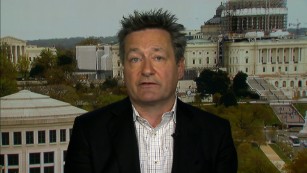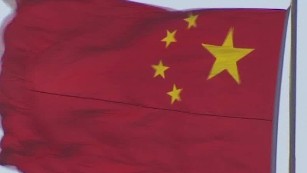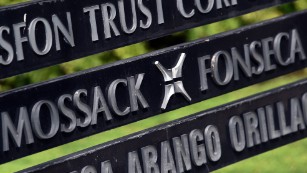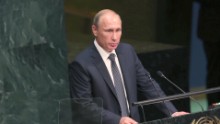Putin and the Panama Papers: Why power means more than money
The Kremlin introduced a new word into the English language Monday: "Putinophobia."
It was in reaction to allegations from the International Consortium of Investigative Journalists and its media partners, who say they obtained a collection of documents revealing -- among other claims -- a clandestine network that connects associates of Russian President Vladimir Putin to hidden wealth in secret offshore companies.
Simply put, the Russian government has denounced the ICIJ revelations, known as the Panama Papers, as a giant smear campaign to discredit Russia's autocratic leader -- an attempt to undermine him ahead of parliamentary elections later this year.
Panama Papers: 7 things to know

Panama Papers source claimed 'their life was in danger'
The reports, which CNN hasn't been able to independently verify, also directly implicate 12 current or former world leaders. Since their release, the Prime Minister of Iceland, Sigmundur David Gunnlaugsson, has stepped down in the face of accusations of financial impropriety.
But for Kremlin-watchers looking for a similar dethronement, don't hold your breath. The Russian public has become somewhat immune to allegations of corruption concerning its leader and his inner circle.
Numbers? It's a guessing game
For years, Putin's critics have played a guessing game about the size of the Russian leader's private fortune.
Stanislav Belkovsky, an outspoken Russian political analyst, came up with a figure of $40 billion in 2007 after claiming Putin controlled significant interests in Russia's oil and gas industries.

China censors reports about Panama Papers
It could be as much as $200 billion, Bill Browder -- the CEO of Hermitage Capital Management, formerly Russia's largest foreign investor, and a former Putin supporter -- told CNN's Fareed Zakaria last year.
In fact, there was never much to support such estimates.
As the latest revelation contained in the Panama Papers data leak suggests, hard evidence when it comes to Putin is hard to come by.
Not a single document, his aides reiterate, has Putin's name on it. In fact, the powerful Russian president appears to have very few assets signed in his name.
What about Putin's inner circle?
No, it's the members of Putin's tight-knit inner circle, his friends, former KGB colleagues, and loyal businessmen who the ICIJ report alleges own the luxury property, front the shell companies and bank the money.
READ: Panama Papers: Whose head may roll?
Friends like Sergei Roldugin, a concert cellist from St. Petersburg who, as a young man, introduced Putin to his former wife, Lydmilla, and became godfather to their first daughter, Maria.
For decades, he's been Putin's best pal and, according to the Panama leaks, now appears to front a series of offshore shell companies that have seen hundreds of millions of dollars of Russian loans and lucrative contracts pass through their books.

Denials, outrage after 'Panama Papers' published
"Payments are disguised in various ways," the ICIJ reported. "On paper, shares in companies are swapped back and forth in a day. Documents are backdated. Questionable financial penalties are assessed. The rights to multimillion-dollar loans are sold between offshore companies for $1."
Roldugin has not responded to CNN's requests for an interview about the financial dealings and told reporters with the ICIJ that he needed more time to figure out what he wanted to say. But he did play down his wealth in comments to The New York Times. "I've got an apartment, a car, a dacha," he told the newspaper. "I don't have millions."
According to leaked documents, some of the cash was loaned to companies controlled by others close to the Russian leader, raising further concerns about money laundering.
News Courtesy: www.cnn.com











